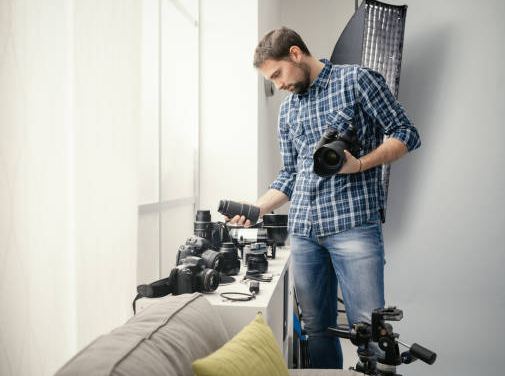The market is flooded with digital cameras, making it difficult for anyone to select the right one.
So, how do you choose the camera that meets your needs? One way is to take the help of a professional. The other is to learn about the cameras and take a decision.
Here are some points that can help you:
1. Are you a beginner who just wants a simple, inexpensive, point and shoot camera, or a serious amateur, who wants a full-featured single-lens reflex, with interchangeable lenses?
Your choice may depend on what you can afford. Compacts, with zoom lenses that cannot be interchanged, are the most popular. They usually have an optical zoom and/or a digital zoom, of at least 3X.
2. Resolution is the measure of the quality of the image, and it is measured in megapixels. A higher resolution produces better image quality and allows you to make bigger prints.
However, the higher the megapixel count, the more memory you need to store the digital images.
You should therefore look for cameras that are 4 or 5 megapixels; leave the higher end for the professionals. You can be sure that a 4 or 5-megapixel camera will deliver images of a very high resolution.
3. Optical zoom lenses vary the magnification by actually changing the focal length of the lens. Digital zoom lenses, on the other hand, enhance the magnification by enlarging the central section of the image.
That is why the images produced by an optical zoom are much sharper. Keep this in mind when buying your digital camera.
4. A reusable memory card is used to store the digital images that you shoot. When a memory card is filled up, you can plug it into a card reader or adapter, and offload the image files to your computer, or microdrive.
You should get a memory card with as much RAM as you can afford. This will enable you to shoot more pictures. You can also consider buying one or two spare memory cards for use in an emergency.
5. Your digital camera battery powers your camera as well as the flash. Look for a rechargeable lithium ion (Li-Ion) battery and keep a spare, if you can afford it. The Li-Ion batteries last longer and can generate more power.
6. Digital cameras now offer advanced features that make it easier for you to take good pictures.
A few of them are:
An aperture of at least f/1.8: This allows low light digital photography without a flash.
Image stabilization: This ensures sharp pictures at slower shutter speeds.
Adjustable LCD monitor: This allows a picture to be viewed from different angles. It also makes viewing easier as compared to a traditional viewfinder.
One-touch white balance: This ensures accurate color balance in different settings.
Digital adjustments for exposure, contrast and color saturation: You need to be a good photographer to make use of these.
A composite mode that allows you to merge two images. This is a great facility for taking group photographs.
Finally, you should stick to reputed brands. You should also read reviews of different brands and makes of digital cameras, and compare their prices on digital photography websites before making the purchase.

